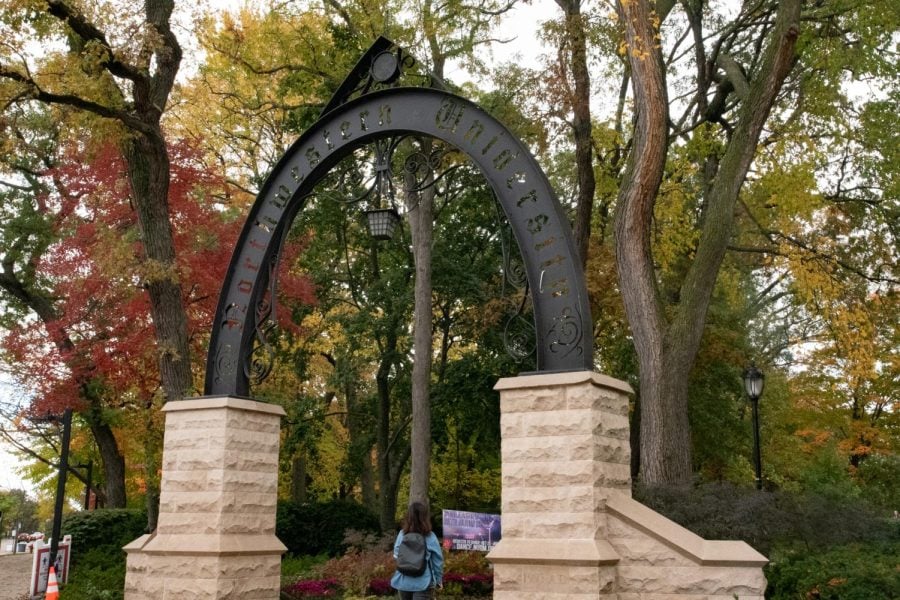School of Communication launches new student film incubator focused on mental health
Angeli Mittal/Daily Senior Staffer
Weber Arch. A new studio lab at Northwestern will provide students with three quarters of training, lectures and instruction considering mental health representation in media.
January 3, 2022
Northwestern’s School of Communication launched a new studio lab this winter in an effort to change mental health representation in film, the University announced Monday.
The Pritzker Pucker Studio Lab for the Promotion of Mental Health via Cinematic Arts will provide students with three quarters of instruction focused on mental health representation in media. The studio lab aims to encourage students to think about the ways mental health is portrayed in media or used as a plot device. Lab Director David Tolchinsky said media and narrative can instead be used to spread awareness about mental health.
“It is well documented that mass media has long perpetuated a profoundly negative stigma related to mental health,” Tolchinsky said in a news release. “Through one-dimensional viewpoints, inaccurate portrayals and depictions centered on fear and shame, the media has reinforced discriminatory behavior toward people experiencing mental health issues and propagated impediments to treatment and recovery.”
The lab will also offer students grants to create screenplays and films over the course of a year.
The Pritzker Pucker Family Foundation and Jessica Pucker (Weinberg ’19) provided a $1 million grant to fund the studio lab, which will host weekly public lectures and discussions with the Northwestern and Evanston communities about mental health beginning Thursday.
“By educating media makers about the multi-dimensional aspects of mental health, encouraging discussion around complex topics, and amplifying marginalized voices, we can generate a meaningful change in the way mental health is understood by society-at-large,” Tolchinsky said.
Email: [email protected]
Twitter: @isabeldfunk
Related Stories:
— “These are very strange times:” remote learning disrupts student films, RTVF classes
— E. Patrick Johnson named School of Communication dean; first African American in that position


